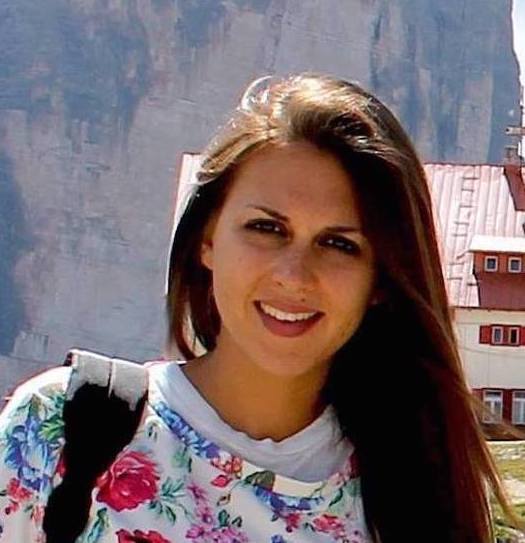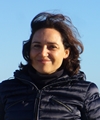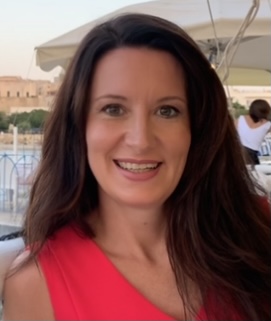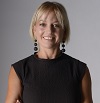Studying at the University of Verona
Here you can find information on the organisational aspects of the Programme, lecture timetables, learning activities and useful contact details for your time at the University, from enrolment to graduation.
Academic calendar
The academic calendar shows the deadlines and scheduled events that are relevant to students, teaching and technical-administrative staff of the University. Public holidays and University closures are also indicated. The academic year normally begins on 1 October each year and ends on 30 September of the following year.
Course calendar
The Academic Calendar sets out the degree programme lecture and exam timetables, as well as the relevant university closure dates..
| Period | From | To |
|---|---|---|
| Sem. 1A | Sep 26, 2022 | Nov 5, 2022 |
| Sem. 1B | Nov 14, 2022 | Dec 23, 2022 |
| Sem. 2A | Feb 13, 2023 | Mar 30, 2023 |
| Sem. 2B | Apr 11, 2023 | May 27, 2023 |
| Session | From | To |
|---|---|---|
| Sessione Invernale | Jan 9, 2023 | Feb 11, 2023 |
| Sessione Estiva | Jun 5, 2023 | Jul 22, 2023 |
| Sessione Autunnale | Aug 28, 2023 | Nov 23, 2023 |
| Sessione straordinaria invernale | Jan 8, 2024 | Feb 17, 2024 |
| Session | From | To |
|---|---|---|
| Sessione Estiva | Jul 10, 2023 | Jul 15, 2023 |
| Sessione Autunnale | Nov 6, 2023 | Nov 11, 2023 |
| Sessione invernale | Apr 2, 2024 | Apr 8, 2024 |
| Period | From | To |
|---|---|---|
| Festa di Ognissanti | Nov 1, 2022 | Nov 1, 2022 |
| Festività Della Immacolata Concezione | Dec 8, 2022 | Dec 8, 2022 |
| Vacanze natalizie | Dec 24, 2022 | Jan 8, 2023 |
| Vacanze di Pasqua | Apr 7, 2023 | Apr 10, 2023 |
| Festa della liberazione | Apr 25, 2023 | Apr 25, 2023 |
| Festa del lavoro | May 1, 2023 | May 1, 2023 |
| Festa del Santo Patrono | May 21, 2023 | May 21, 2023 |
| Festa della Repubblica | Jun 2, 2023 | Jun 2, 2023 |
| Chiusura estiva | Aug 14, 2023 | Aug 19, 2023 |
Exam calendar
Exam dates and rounds are managed by the relevant Humanistic Studies Teaching and Student Services Unit.
To view all the exam sessions available, please use the Exam dashboard on ESSE3.
If you forgot your login details or have problems logging in, please contact the relevant IT HelpDesk, or check the login details recovery web page.
Should you have any doubts or questions, please check the Enrollment FAQs
Academic staff
 tamara.bastianello@univr.it
tamara.bastianello@univr.it
 cristina.bertazzoni@univr.it
cristina.bertazzoni@univr.it
 andrea.ghidini@univr.it
andrea.ghidini@univr.it
 stefania.pontrandolfo@univr.it
stefania.pontrandolfo@univr.it
 massimo.recalcati@univr.it
massimo.recalcati@univr.it
 sorayaelizabeth.shamloo@univr.it
sorayaelizabeth.shamloo@univr.it
 marco.ubbiali@univr.it
marco.ubbiali@univr.it
Study Plan
The Study Plan includes all modules, teaching and learning activities that each student will need to undertake during their time at the University.
Please select your Study Plan based on your enrollment year.
1° Year
| Modules | Credits | TAF | SSD |
|---|
2° Year activated in the A.Y. 2023/2024
| Modules | Credits | TAF | SSD |
|---|
Indirect internship for coordination of educational services
| Modules | Credits | TAF | SSD |
|---|
| Modules | Credits | TAF | SSD |
|---|
Indirect internship for coordination of educational services
| Modules | Credits | TAF | SSD |
|---|
Legend | Type of training activity (TTA)
TAF (Type of Educational Activity) All courses and activities are classified into different types of educational activities, indicated by a letter.
Epistemology of qualitative research (2022/2023)
Teaching code
4S000559
Teacher
Coordinator
Credits
9
Language
Italian
Scientific Disciplinary Sector (SSD)
M-PED/01 - PEDAGOGY, THEORIES OF EDUCATION AND SOCIAL EDUCATION
Period
Sem. 2A, Sem. 2B
Learning objectives
Knowledge and understanding
1. The students should be able to know and understand the essence of the epistemology of the qualitative research in educative contexts.
2. The students should be able to know and understand the specificity of the qualitative research in its paradigmatic, epistemological, philosophical and methodological aspects.
3. The student must be able to assume the posture of research as a fundamental competence of the pedagogical profession, in order to build heuristic practices capable of understanding the contexts and improving the quality of services.
Applying knowledge and understanding
1. The students should be able to project experiences of qualitative research contextualized in educative contexts.
2. The students should be able to create an interconnection between theoretical elements and empirical data.
3. The students must be able to take the results of the research in order to implement the quality of the services.
Prerequisites and basic notions
tudents will be requested to have the following pre-requisite:
• the knowledge of paradigms and methods of the research, in particular those that are framed in an ecological paradigm.
Program
The contents of the course will be presented through the alternation of frontal lessons and laboratories: in this way it will be possible for students to be engaged in a “community of learning and practice”.
The course will deal with the following themes:
• The principal approach of the qualitative research;
• How to realize a qualitative research in educational contexts;
• The specificity of an educative research;
• The role of educative research for innovation in educational contexts;
• The ethical dimension of the research;
• The analysis of research projects in educational contexts.
It will be stressed the two necessary competences asked to a good pedagogist: research and reflection.
It will be presented the new "Empirical phenomenological Method" elaborated by Luigina Mortari, suitable for understanding living experience, in particoular in educational fields.
Bibliography
Didactic methods
During the course the students will be involved in laboratorial activities, so that they will be allowed to practice the analysis of qualitative data. This will allow them to face, in a direct or simulated way, all the epistemological, methodological and ethical aspects of the educative research.
Also case studies (taken from the professional context) will be presented to students.
Learning assessment procedures
Evaluation will be realized through a written presentation concerning the texts studied and the practices examined.
Evaluation criteria
Students should prove that they:
• Have understood the relevant elements characterizing the qualitative research;
• Are able to present the specificity of educative research, with precision and clarity;
• Are able to critically analyze case studies and experiences.
Criteria for the composition of the final grade
The texts will be evaluated taking into consideration the correctness of contents, the capacity to communicate in an efficient way and the quality of written composition.
Exam language
Italiano
Type D and Type F activities
I 9 crediti liberi a scelta dello studente (ambito “D”) hanno lo scopo di offrire allo studente la possibilità di personalizzare il proprio percorso formativo permettendo di approfondire uno o più argomenti di particolare interesse legati al proprio percorso accademico.
Per garantire questo fine, si invitano gli studenti a rispettare le seguenti indicazioni per il completamento di tale ambito:
- almeno un’attività formativa erogata come esame universitario (con relativo voto in trentesimi);
- massimo 6 cfu relativi a competenze linguistiche (oltre a quelli previsti dal PdS);
- massimo 6 cfu relativi a competenze informatiche (oltre a quelli previsti dal PdS);
- massimo 4 cfu di tirocinio, (oltre a quelli previsti dal PdS);
- massimo 6 cfu di attività laboratoriale/esercitazioni (compresi quelli previsti nei PdS per l’ambito) di regola viene riconosciuto 1 cfu ogni 25 ore di attività;
- massimo 6 cfu di attività seminariale/convegni/cicli di incontri/formative in genere (sia accreditata dal Dipartimento di Scienze Umane che extrauniversitaria) – di regola viene riconosciuto 1 cfu ogni 8 ore di partecipazione e/o 2 giornate salvo diversamente deliberato;
- non vengono valutate attività svolte in Erasmus non inserite nei Learning Agreement.
Altre informazioni sono reperibili nella Guida per i crediti liberi che è possibile trovare quì.
COMPETENZE TRASVERSALI
Scopri i percorsi formativi promossi dal Teaching and learning centre dell'Ateneo, destinati agli studenti iscritti ai corsi di laurea, volti alla promozione delle competenze trasversali:
https://talc.univr.it/it/competenze-trasversali
| years | Modules | TAF | Teacher |
|---|---|---|---|
| 1° 2° | Il teatro dell'oppresso | D |
Paola Dusi
(Coordinator)
|
| 1° 2° | Le 16 attitudini per una vita felice | D |
Paola Dusi
(Coordinator)
|
| 1° 2° | Movement medicine | D |
Paola Dusi
(Coordinator)
|
| 1° 2° | Summer school: human sciences and society - (HSAS) – 2022/2023 | D |
Federica De Cordova
(Coordinator)
|
| years | Modules | TAF | Teacher |
|---|---|---|---|
| 1° 2° | Laboratory of behavioral observation techniques | D |
Marinella Majorano
(Coordinator)
|
| years | Modules | TAF | Teacher |
|---|---|---|---|
| 1° 2° | Body and Disability – Laboratory | D |
Michele Scandola
(Coordinator)
|
| 1° 2° | Laboratorio di painting dialogue | D |
Paola Dusi
(Coordinator)
|
| 1° 2° | Group Psychology and evaluation of educational intervention | D |
Anna Maria Meneghini
(Coordinator)
|
| 1° 2° | Le 16 attitudini per una vita felice (ed. 2023) | D |
Paola Dusi
(Coordinator)
|
| 1° 2° | OMeGA - Horizons, Models and Assisted Parenting | D |
Alessandra Cordiano
(Coordinator)
|
| 1° 2° | Tai-Ti aiuto io | D |
Alessandra Cordiano
(Coordinator)
|
| 1° 2° | Se le api sono poche-pedagogia del movimento (ed. 2023) | D |
Rosanna Cima
(Coordinator)
|
| years | Modules | TAF | Teacher |
|---|---|---|---|
| 1° 2° | Il teatro dell'oppresso (ed. 2023) | D |
Paola Dusi
(Coordinator)
|
| 1° 2° | Movement medicine (ed. 2023) | D |
Paola Dusi
(Coordinator)
|
| 1° 2° | OMeGA - Horizons, Models and Assisted Parenting | D |
Alessandra Cordiano
(Coordinator)
|
| 1° 2° | Tai-Ti aiuto io | D |
Alessandra Cordiano
(Coordinator)
|
Career prospects
Module/Programme news
News for students
There you will find information, resources and services useful during your time at the University (Student’s exam record, your study plan on ESSE3, Distance Learning courses, university email account, office forms, administrative procedures, etc.). You can log into MyUnivr with your GIA login details: only in this way will you be able to receive notification of all the notices from your teachers and your secretariat via email and soon also via the Univr app.
Student mentoring
Graduation
Documents
| Title | Info File |
|---|---|
|
|
pdf, it, 99 KB, 13/10/23 |
|
|
pdf, it, 101 KB, 10/04/24 |
List of theses and work experience proposals
| theses proposals | Research area |
|---|---|
| Psicoanalisi | Psychology - Psychology, Psychoanalysis |
Gestione carriere
Linguistic training CLA
Practical information for students
Documents
| Title | Info File |
|---|---|
|
|
pdf, it, 325 KB, 02/05/23 |
|
|
pdf, it, 212 KB, 02/05/23 |
|
|
pdf, it, 131 KB, 02/05/23 |
Stage e Tirocini
Per le altre attività formative (crediti F) sono previsti 9 cfu (pari a 225 ore) da acquisire solamente attraverso l’attività di tirocinio obbligatoria, a sua volta suddivisa in:
- tirocinio indiretto (1 cfu: 25 ore di frequenza obbligatoria in università per il 75%) in preparazione dell’attività formativa sul campo;
- tirocinio diretto (8 cfu), da svolgersi presso enti convenzionati.
L’ordinamento didattico della LM in Scienze pedagogiche prevede che il tirocinio indiretto a frequenza obbligatoria si svolga in università per il 75% nel secondo anno (1 CFU: 25 ore).
Il tirocinio indiretto consiste in un accompagnamento iniziale delle/degli studenti da parte dei tutor attraverso un percorso di formazione della durata di 25 ore.
La finalità di questo percorso è quella di preparare le/gli studenti alla particolare forma di apprendimento costituita dal tirocinio, dotandoli di conoscenze e strumenti adeguati a osservare, comprendere e rielaborare criticamente l’esperienza di tirocinio nei servizi educativi e ad affrontare il tirocinio negli enti con metodo e consapevolezza.
Il percorso, da attuare in gruppi da 20-25 persone sotto la supervisione di un tutor proveniente dal mondo professionale di educatori e pedagogisti, risponde alle esigenze costantemente espresse sia dalle/dagli studenti stessi sia dalle parti sociali che dai referenti degli enti convenzionati.
Nuove Linee Guida per il tirocinio di Scienze pedagogiche.
- Tutte le informazioni in merito agli stage per futuri studenti sono disponibili alla pagina Stage e tirocini.
- Tutte le informazioni in merito agli stage per studenti iscritti sono pubblicate in MyUnivr - come fare per - stage e tirocini.
- Tutte le informazioni in merito agli stage per le aziende sono disponili alla pagina Stage e tirocini per azienze.



 045 802-8183
045 802-8183

























